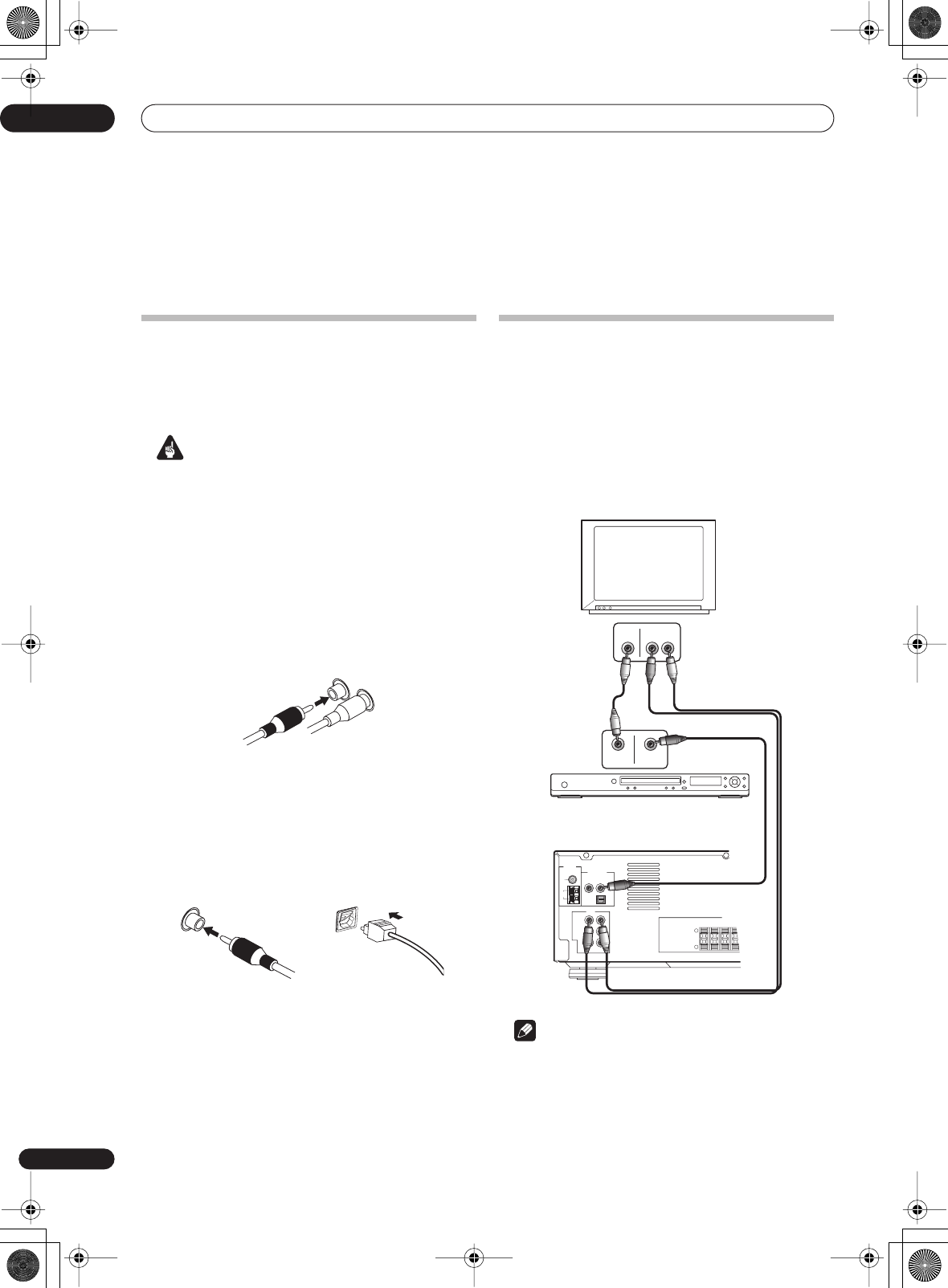
Connecting up
02
6
En
Chapter 02:
Connecting up
Making cable connections
Make sure not to bend the cables over the top of this unit
(as shown in the illustration). If this happens, the
magnetic field produced by the transformers in this unit
may cause a humming noise from the speakers.
Important
• Before making or changing any connections, switch
off the power and disconnect the power cable from
the AC outlet.
Audio cables (analog)
Use audio cables (not supplied) to connect audio
components.
Connect red plugs to
R
(right) jacks, white plugs to
L
(left).
Be sure to insert completely.
Coaxial and Optical digital audio cables
Coaxial digital audio cables (standard video cables can
also be used) or optical cables are used to connect digital
components to this receiver.
Be sure to insert completely.
• When inserting the plug of an optical cable, be
careful not to damage the shutter protecting the
optical jack.
• Do not bend optical cables around sharp corners as
they may be damaged. When storing, coil loosely.
Connecting to a TV and DVD recorder
or player
The diagram below shows the connections for a basic
home theater setup of a TV, DVD recorder (or player) and
this receiver.
Audio is output from the DVD recorder’s coaxial digital
audio jack, while the video output goes to the TV. Also
shown is a stereo analog audio connection from your TV
to this receiver so you can enjoy sound from this receiver
when watching TV programs.
Note
• If your DVD recorder only has an optical digital
output, you can still connect it to this receiver using
the
OPTICAL DIGITAL
jack. In this case you will have
to select the
DIGITAL
input function rather than
DVD
.
L
R
Coaxial digital audio cable
(or standard video cable)
Optical cable
DVD recorder/player
SX-315
TV
AUDIO
SPEAKERS
RL
CENTER
SUB
WOOFER
DIGITAL INPUT
ANTENNA
TV IN
(OPTICAL)
FM
UNBAL
75Ω
AM
LOOP
(COAXIAL)
STB DVD/DVR
DIGITAL
OUT
RL
IN
+
–
FRONT
DIGITAL
OUT COAX
VIDEO
OUT
R AUDIO L
OUT
VIDEO
IN
SX-315.book Page 6 Friday, February 3, 2006 12:18 PM


















